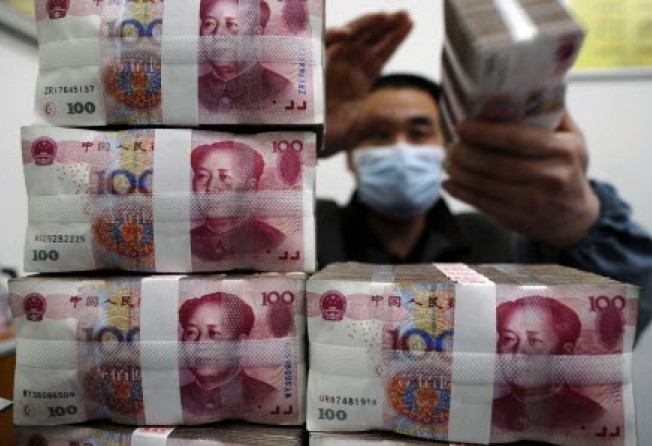
London confident on new offshore yuan role
City's ambitions as an offshore centre are helped by better political ties and an international payment system that lets it bypass Hong Kong for clearing

The offshore yuan centre in London will benefit from improved Sino-British relations and an international interbank payment system China is expected to launch next year, a senior executive with the City of London said.

“Political relations have not been ideal for the last year, but we do not see that this has adversely affected what has been done,” said Mark Boleat, policy chairman of the City of London Corporation, the local council for the business district.
Last year, yuan financing of imports and exports doubled from 2011 to 33.6 billion yuan (HK$42.2 billion), a City of London study shows. The volume of letters of credit and other loan guarantees grew thirteenfold to 4.7 billion yuan. In the foreign exchange market, spot trading volume in London surged 240 per cent to 2.5 billion yuan a day.

“UK-Sino relations are now better, and this would be helpful to the development of an offshore [yuan] centre,” Boleat said. British Prime Minister David Cameron had to abandon a trip to China planned for April in the face of Beijing’s displeasure after he met the Dalai Lama in May last year.
But a currency swap agreement reached last month was a sign of a thaw in relations.
People’s Bank of China (PBOC) governor Zhou Xiaochuan and Mervyn King, his then-counterpart at the Bank of England, agreed to a three-year currency swap line of up to 200 billion yuan to promote financial stability and bilateral trade.
The development of London as a yuan centre is also expected to benefit from a cross-border interbank payment system (CIPS), which would allow banks in London to clear yuan transactions directly with the PBOC instead of through clearing banks in Hong Kong, Boleat said.
The international payment system, expected to be launched next year, is “potentially a very important development”, financial services consultancy Bourse Consult wrote in a report for the City of London last month.
“Details of the system are still emerging, but a post-CIPS environment is likely to be a very different one for market participants and for financial centres such as London,” the report said.
Taiwan and Singapore took further steps last year to develop themselves as offshore yuan clearing centres.
The approach, establishing a clearing arrangement through a local clearing bank appointed by the PBOC, is similar to that of Hong Kong, but different from London’s. As London’s yuan business often involves counterparties in Hong Kong, the city has chosen to use clearing arrangements in Hong Kong.
The City of London welcomes the CIPS, as it would not involve any intermediate clearing bank and so would improve efficiency, the report said.
The system, when fully operational, would enable a more fluid transfer of activity from one centre to others, the report said. Shanghai could become a much more prominent international centre, to Hong Kong’s detriment, it said.
However, yuan trading volumes in Hong Kong, Taiwan and Singapore are unlikely to decrease, because of growing demand for offshore yuan, it said.
A spokeswoman for the Hong Kong Monetary Authority said: “The enhancement of channels for cross-border flows of yuan, including the arrangements for relevant payments, would be conducive to the wider use of [yuan] and the further development of the offshore [yuan] market.
“This in turn would generate more opportunities for the further development of Hong Kong as the offshore yuan centre.”
Weber Lo Wai-pak, Citi’s country officer and chief executive of its Hong Kong office, said the establishment of the CIPS would be a key infrastructure development for China’s internationalisation of yuan.
“It will change the global yuan clearing model as a whole and greatly improve cross-border yuan settlement efficiency,” Lo said.
Andrew Fung, an executive director of Hang Seng Bank, said Hong Kong should be able to compete with the growing list of rivals.
“There are three offshore clearing centres now, and Hong Kong remains the most competitive so far,” Fung said.
He said that since Hong Kong had the largest offshore pool of yuan deposits and remained the largest trading and debt capital market centre, the proposed PBOC payment system should serve only an operational purpose and should not have a major impact on the yuan business of banks in the city.
Since 2009 China has encouraged use of the yuan for trade and investment, in the hope it will eventually become a reserve currency like the US dollar.
Hong Kong was the first offshore yuan trading centre, but London, Paris, Singapore and Sydney have joined the race in the past two years.